The mold remediation and property restoration industry offers a variety of rewarding career opportunities for professionals interested in making a difference in people’s lives and preserving property. This field provides critical services to homeowners, businesses, and government entities facing property damage from mold, water, fire, and other disasters. From field technicians to management positions, the industry presents multiple pathways for growth, competitive salaries, and job stability. In this guide, we’ll delve into the various career roles, skill requirements, job outlook, and tips for building a successful career in mold remediation and property restoration.

Why Pursue a Career in Mold Remediation & Property Restoration?
A career in mold remediation and property restoration is ideal for individuals passionate about environmental health, public safety, and property protection. The industry plays a crucial role in restoring damaged properties, improving indoor air quality, and reducing health risks associated with mold exposure and other hazards. Moreover, with increased awareness of environmental and indoor air quality issues, the demand for skilled professionals in mold remediation and restoration continues to rise.
Learn more about the importance of mold remediation from the Environmental Protection Agency (EPA).
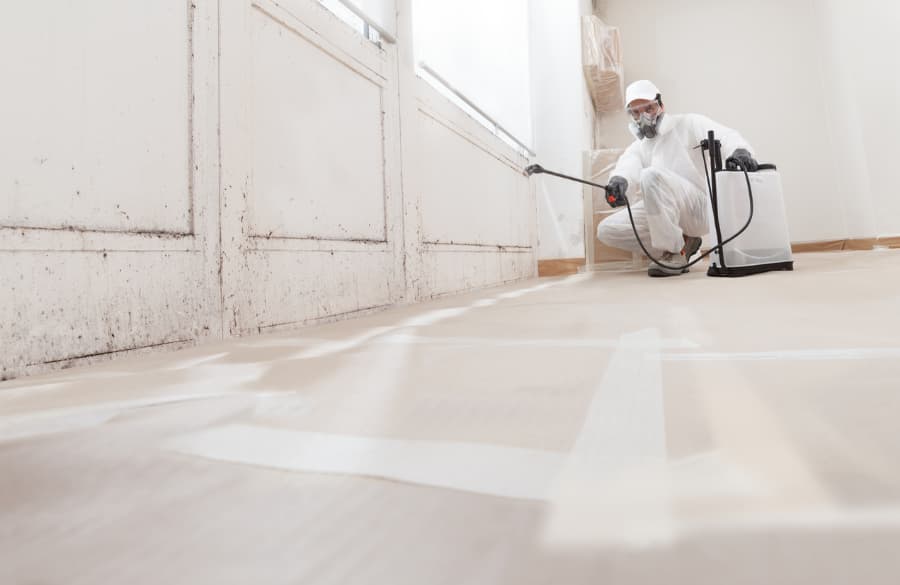
Top Career Paths in Mold Remediation & Property Restoration
The mold remediation and property restoration field encompasses a range of positions, from entry-level roles to advanced technical and managerial positions. Below, we explore some of the most common career paths, including key responsibilities and required qualifications:
1. Mold Remediation Technician
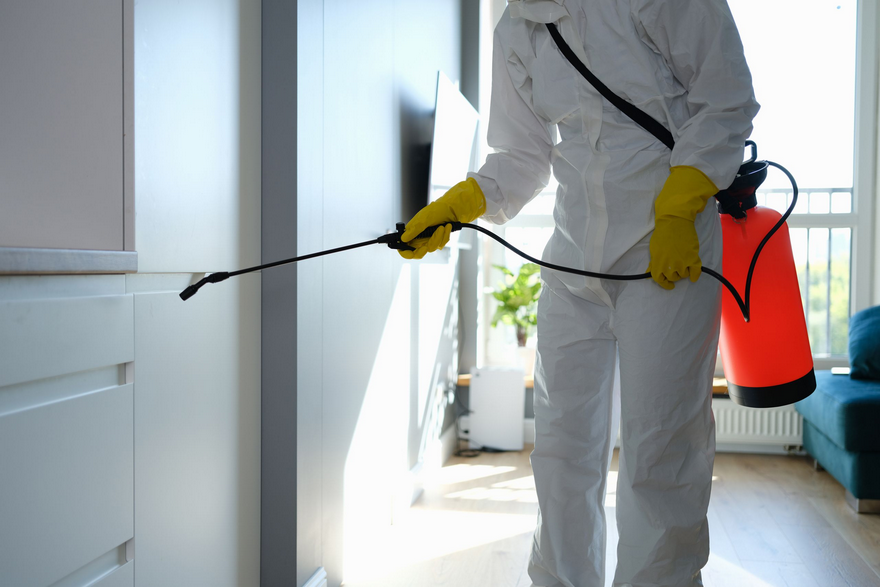
Role Overview: Mold remediation technicians are on the front lines of mold removal, responsible for assessing mold damage, removing mold-contaminated materials, and treating affected areas to prevent further growth. Technicians work under the supervision of certified mold inspectors or project managers and follow strict safety protocols to protect themselves and occupants from mold exposure.
Key Responsibilities:
- Conduct mold inspections to assess damage and identify sources of moisture.
- Set up containment areas and use specialized equipment for safe mold removal.
- Dispose of contaminated materials according to regulatory guidelines.
- Apply mold-inhibiting treatments to prevent recurrence.
Qualifications: Typically requires a high school diploma or GED and on-the-job training. Certification, such as from the Institute of Inspection, Cleaning and Restoration Certification (IICRC), is often preferred.
2. Water Damage Restoration Technician
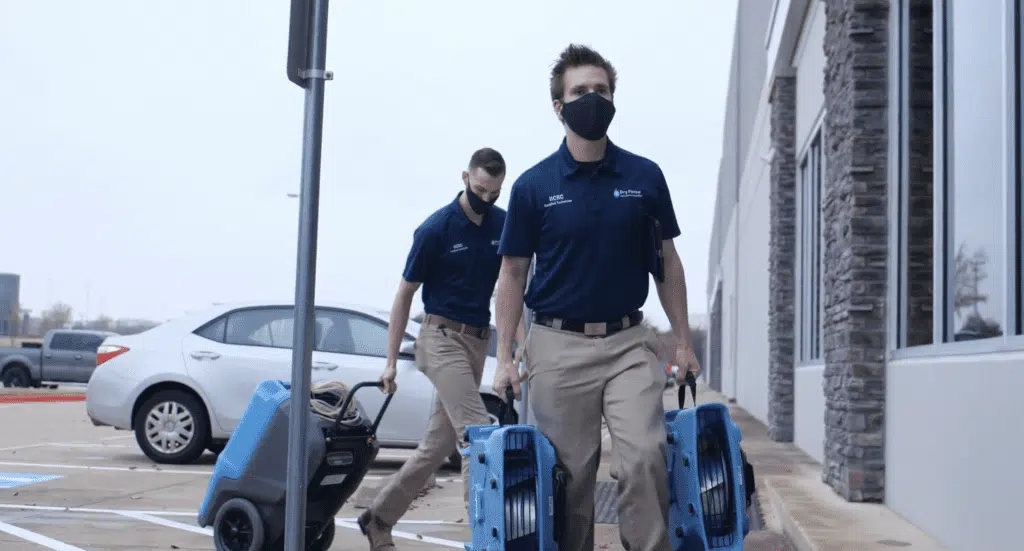
Role Overview: Water damage restoration technicians specialize in restoring properties affected by water damage, often working alongside mold remediation technicians. They focus on water extraction, drying, and cleaning to prevent secondary mold growth and structural issues.
Key Responsibilities:
- Use water extraction and drying equipment to remove excess moisture.
- Assess damage to floors, walls, and structural components.
- Apply anti-microbial treatments to prevent mold growth.
- Monitor drying progress and document results for insurance purposes.
Qualifications: High school diploma or GED, along with IICRC certification in water damage restoration. Strong knowledge of drying techniques and moisture management is essential.
3. Environmental Health & Safety (EHS) Specialist
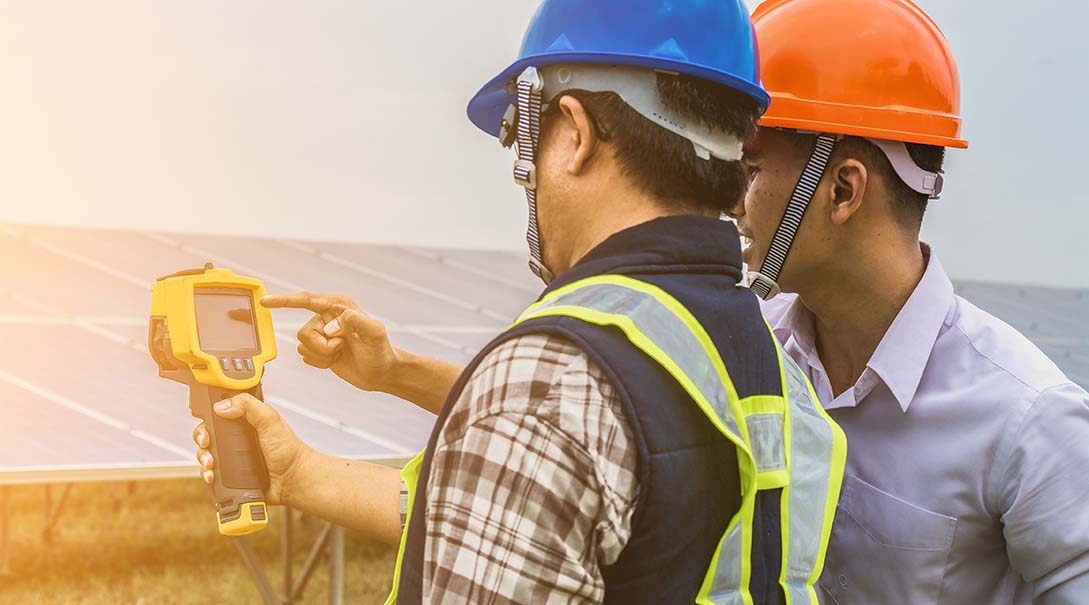
Role Overview: EHS specialists ensure that remediation and restoration projects comply with health and safety regulations. They conduct site inspections, train employees on safety protocols, and oversee the safe handling of hazardous materials.
Key Responsibilities:
- Inspect project sites to ensure compliance with OSHA regulations.
- Develop and enforce safety policies for employees and clients.
- Conduct safety training and certification programs for team members.
- Ensure proper handling, storage, and disposal of hazardous materials.
Qualifications: Bachelor’s degree in environmental science, industrial hygiene, or related field. Certification as a Certified Safety Professional (CSP) or OSHA safety certification is often required.
4. Certified Mold Inspector
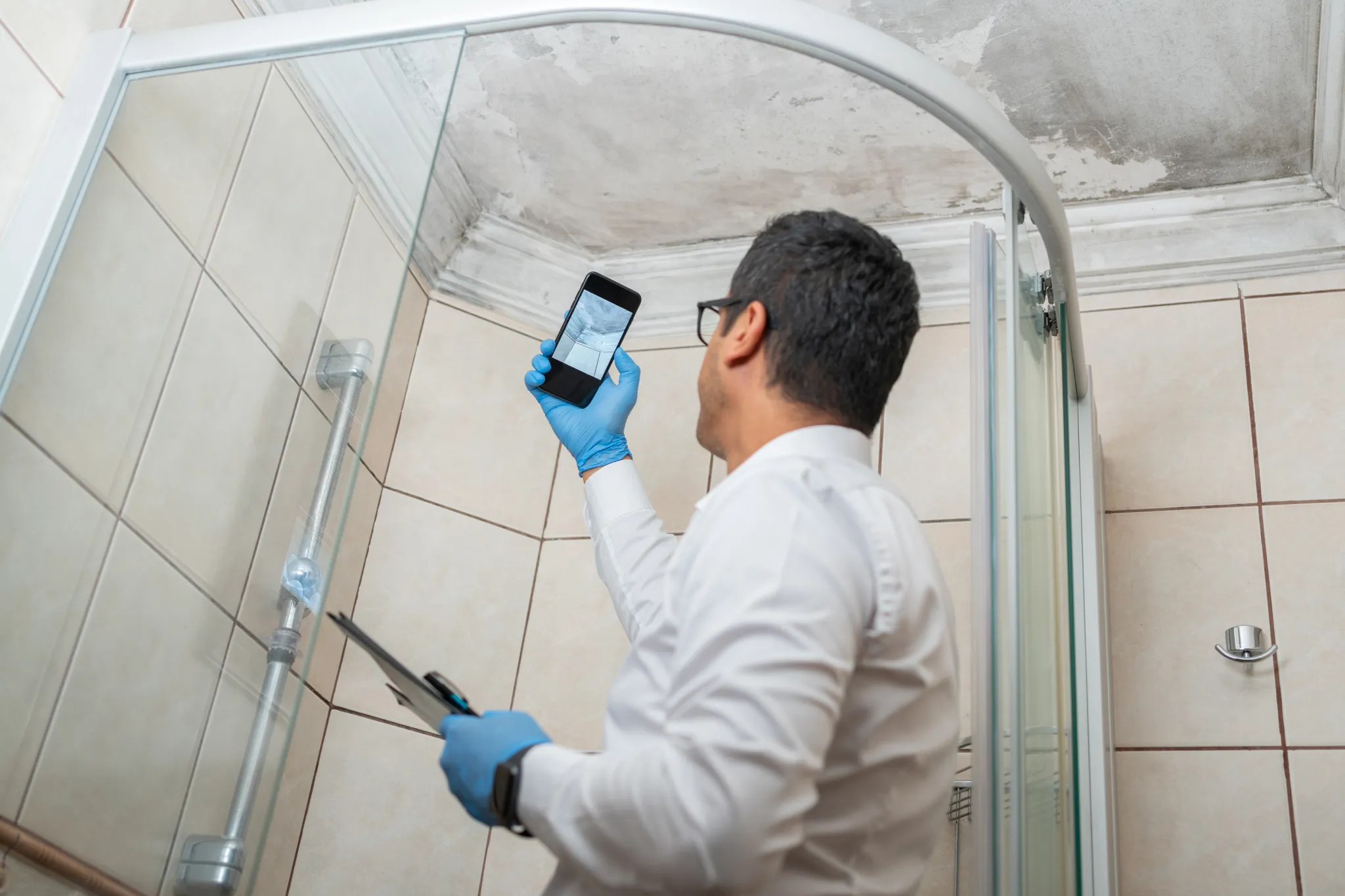
Role Overview: Certified mold inspectors are responsible for identifying mold sources, assessing damage, and recommending remediation plans. They conduct mold testing, prepare reports, and work closely with clients and remediation technicians.
Key Responsibilities:
- Perform indoor air quality testing and mold sampling.
- Assess and document mold contamination levels.
- Prepare detailed reports with remediation recommendations.
- Work with clients to educate them on mold prevention and mitigation.
Qualifications: Certification from IICRC or the American Council for Accredited Certification (ACAC) is typically required. A background in environmental science or biology is advantageous.
5. Project Manager

Role Overview: Project managers oversee entire remediation and restoration projects, from initial assessments to final walkthroughs. They coordinate teams, manage budgets, ensure regulatory compliance, and communicate with clients and insurance companies.
Key Responsibilities:
- Oversee project scheduling, budgeting, and staffing.
- Ensure project milestones are met within budget and timeframe.
- Act as the primary contact for clients, adjusters, and regulatory agencies.
- Conduct project closeouts and follow-up inspections.
Qualifications: Bachelor’s degree in construction management, environmental science, or a related field. Project Management Professional (PMP) certification is a plus.
Job Outlook and Growth Potential in Mold Remediation & Property Restoration
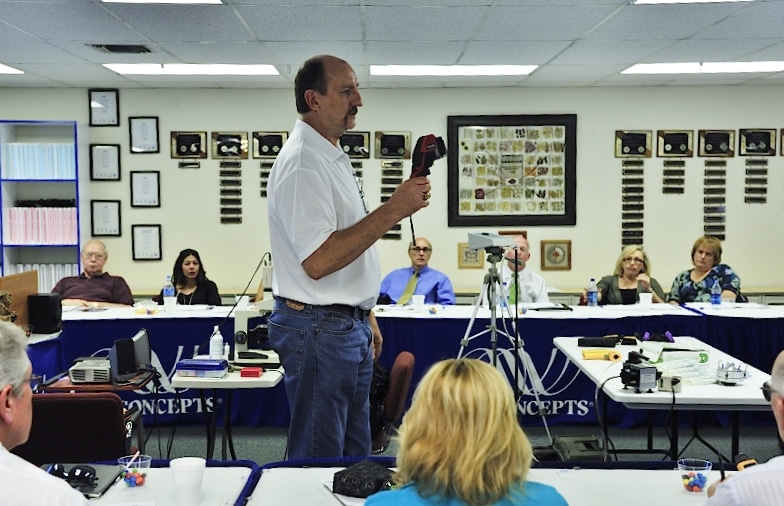
The mold remediation and property restoration industry is expected to see steady growth due to increased awareness of indoor air quality and climate-related disasters, such as flooding and hurricanes, which can lead to mold growth. The Bureau of Labor Statistics projects steady demand for hazardous material removal workers, which includes mold remediation professionals.
As the industry grows, demand for skilled and certified professionals is expected to increase, particularly in areas prone to flooding, hurricanes, or high humidity, which are conducive to mold growth. Professionals who pursue certifications and advanced training can expect career advancement opportunities and increased earning potential.
Salary Expectations in Mold Remediation & Property Restoration
Salaries in the mold remediation and property restoration industry vary based on role, experience, certification, and location. Here’s a look at average salaries for key roles in the industry:
| Position | Average Salary | Education/Certification Requirements |
|---|---|---|
| Mold Remediation Technician | $35,000 – $45,000 per year | High school diploma, IICRC certification preferred |
| Water Damage Restoration Technician | $36,000 – $50,000 per year | High school diploma, IICRC certification required |
| Environmental Health & Safety Specialist | $60,000 – $75,000 per year | Bachelor’s degree, CSP or OSHA certification |
| Certified Mold Inspector | $50,000 – $70,000 per year | IICRC or ACAC certification, relevant experience |
| Project Manager | $65,000 – $90,000 per year | Bachelor’s degree, PMP certification preferred |
Skills and Qualities for Success in Mold Remediation & Property Restoration
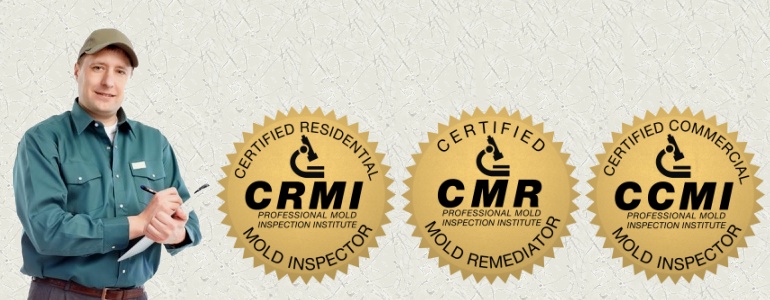
Success in this field requires a unique set of technical skills, interpersonal abilities, and personal qualities. Here are some key skills and traits for a rewarding career in mold remediation and property restoration:
- Attention to Detail: Accurate mold assessments, safety protocol adherence, and precise documentation are essential for effective remediation.
- Problem-Solving Abilities: Professionals must quickly identify the source of mold and moisture issues and devise effective solutions for remediation.
- Physical Stamina: Many roles require physical labor, including lifting, bending, and working in confined spaces.
- Communication Skills: Clear communication is vital when working with clients, regulatory agencies, and team members.
- Commitment to Safety: Mold remediation can expose workers to hazardous materials, so a strong commitment to safety is necessary.
FAQs About Careers in Mold Remediation & Property Restoration
| Question | Answer |
|---|---|
| What certifications are required for mold remediation? | While not always required, IICRC or ACAC certifications are highly recommended for mold remediation professionals. |
| Do I need a college degree to work in this field? | Entry-level roles don’t require a degree, but advanced positions like EHS specialist or project manager may require a bachelor’s degree. |
| How can I advance my career in property restoration? | Pursue certifications, gain hands-on experience, and consider project management training for advancement opportunities. |
| Is mold remediation a physically demanding job? | Yes, many roles require physical labor, including handling heavy equipment and working in confined spaces. |
| Are there opportunities for career growth in this industry? | Yes, with certifications and experience, professionals can advance to roles like project manager, inspector, or safety specialist. |
Conclusion
The mold remediation and property restoration industry offers diverse career opportunities for individuals seeking meaningful work, job stability, and growth potential. With the right skills, certifications, and dedication to safety, professionals in this field can enjoy rewarding careers in helping communities recover from property damage and improving indoor air quality. Whether you’re interested in hands-on roles like mold remediation technician or managerial positions like project manager, the industry provides multiple pathways for advancement and career satisfaction.

